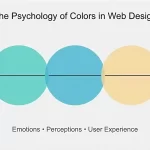Picture this: You’re standing at the base of Mount Everest, armed with nothing but a pair of flip-flops and a can-do attitude. Sounds ridiculous, right? Well, my friend, that’s precisely how many of us approach learning new skills – woefully unprepared, yet oddly confident. But what if I told you that those flip-flops might just be your secret weapon? Welcome to the paradoxical world of the beginner’s mindset, where knowing nothing is your greatest strength.
The TL;DR for Curiosity Connoisseurs
Before we dive headfirst into the delightful depths of the beginner’s mindset, let’s take a quick peek at what’s in store:
-
Embracing ignorance: Your new superpower (No cape required!)
-
The “I Know Nothing” Mantra: Jon Snow was onto something
-
Curiosity killed the cat, but satisfaction brought it back (9 lives, baby!)
-
Failure: Your new best friend (No, really!)
-
The art of asking “stupid” questions (Spoiler: They’re usually the smartest)
-
Rapid skill acquisition: Because who has 10,000 hours to spare?
-
Mind-bending benefits of being a beginner (Prepare to have your brain do backflips)
-
Dos and don’ts of the beginner’s mindset (Your cheat sheet to cognitive flexibility)
Now, let’s embark on this journey of joyful ignorance and lightning-fast learning!
The Beginner’s Mindset: Your Brain on a Diet of Pure Possibility
Ah, the beginner’s mindset – it’s like giving your brain a spa day, complete with a mental massage and a cognitive cucumber water. But what exactly is this mystical state of mind, and why should you care?
The beginner’s mindset, or “shoshin” in Zen Buddhism, is the art of approaching learning with an attitude of openness, eagerness, and – let’s face it – blissful ignorance. It’s about embracing your inner know-nothing and turning it into your greatest asset. Think of it as wearing intellectual sweatpants: comfortable, flexible, and ready for anything.
But why, you ask, should we celebrate our ignorance in a world that seems to worship expertise? Well, dear reader, buckle up, because we’re about to turn everything you thought you knew about learning on its head.
The Paradox of Expertise: When Knowledge Becomes a Cage
Picture the stereotypical expert: graying hair, thick glasses, and a brain so full of knowledge it’s practically leaking out their ears. Now, imagine trying to stuff a new idea into that overstuffed mind-attic. It’s like trying to force another slice of pizza into your already bursting stomach on all-you-can-eat night.
This, my friends, is the expert’s trap. When we become too knowledgeable, too set in our ways, we risk becoming mental hoarders, clutching onto our pre-existing ideas and leaving no room for new ones. It’s cognitive constipation at its finest.
But fear not! The beginner’s mindset is here to save the day, armed with nothing but a blank slate and an insatiable curiosity.
Curiosity: The Ultimate Brain Lubricant
Remember when you were a kid, and everything was a source of wonder? That rock on the ground? Fascinating! The way water swirls down the drain? Mind-blowing! Somewhere along the way, we traded our wide-eyed curiosity for the illusion of certainty. But here’s the kicker: curiosity is the secret sauce of rapid skill acquisition.
When you approach a new skill with unbridled curiosity, you’re essentially giving your brain a VIP pass to the learning party. You ask questions that experts might overlook, you experiment without fear of looking foolish, and you make connections that others might miss.
Pro Tip: Try the “Five Whys” technique. Ask “why” five times in response to any statement or problem. You’ll be amazed at how quickly you can dig to the root of any issue – and possibly annoy everyone around you in the process. Win-win!
The Art of Asking “Stupid” Questions: Your New Superpower
In the land of the beginner’s mindset, there’s no such thing as a stupid question – only stupidly missed opportunities to learn. When you embrace your inner beginner, you give yourself permission to ask those “obvious” questions that others might be too embarrassed to voice.
Remember: Every expert was once a beginner who dared to ask “stupid” questions. So go ahead, be the person who asks why we can’t just print more money to solve economic problems. Your economist friends will love you for it (and possibly disown you, but that’s a small price to pay for knowledge).
The Do’s and Don’ts of Question-Asking
Do:
-
Ask open-ended questions that encourage discussion
-
Seek clarification when you don’t understand something
-
Challenge assumptions (politely) with “What if…” questions
Don’t:
-
Be afraid to ask basic questions – they often lead to profound insights
-
Assume you know the answer – even if you think you do, asking can reveal new perspectives
-
Interrupt others to ask your question – patience is a virtue, even for the curious
Failure: Your New Best Friend (With Benefits)
In the realm of the beginner’s mindset, failure isn’t just an option – it’s a VIP guest. When you’re starting from zero, every stumble is a step forward. It’s like playing a video game with infinite lives: each “game over” is just another chance to level up.
Embracing failure means learning to love the process, not just the outcome. It’s about finding joy in the journey, even when that journey involves face-planting spectacularly in front of an audience. After all, if you’re not failing, you’re not pushing your boundaries – and where’s the fun in that?
Reality Check: Studies have shown that a growth mindset (the belief that abilities can be developed) is more predictive of long-term success than initial talent. So next time you fall flat on your face, just remember: you’re not failing, you’re “cultivating resilience.” Sounds much fancier, doesn’t it?
Failure Reframing Techniques
-
The “Data Collection” Approach: View each failure as a data point in your grand experiment of life.
-
The “Plot Twist” Technique: Treat setbacks as unexpected plot twists in your personal growth story.
-
The “Future Self” Strategy: Imagine your future self thanking your present self for persevering through failures.
Rapid Skill Acquisition: Because Patience is Overrated
Now, let’s talk about the real reason you’re here: learning at the speed of light (or at least faster than your neighbor Bob, who’s still trying to figure out how to use his smartphone).
Contrary to popular belief, mastering a new skill doesn’t always require 10,000 hours of practice. Recent research suggests that with the right approach, you can make significant progress in a new area in as little as 20 hours. That’s less time than it takes to binge-watch a season of your favorite show!
Here’s how to put the beginner’s mindset to work for rapid skill acquisition:
-
Deconstruct the skill: Break it down into its component parts. What are the critical 20% of sub-skills that will give you 80% of the results?
-
Learn enough to self-correct: You don’t need to know everything – just enough to recognize and fix your mistakes.
-
Remove barriers to practice: Set up your environment for success. If you’re learning guitar, keep it out of its case and within reach.
-
Practice for at least 20 hours: Push through the initial frustration barrier. This is where most people quit, but perseverance here is key.
Remember: The goal isn’t to become an expert overnight. It’s to become “good enough” to enjoy the process and continue learning.
The Rapid Skill Acquisition Toolkit
-
Microlearning: Break your learning into small, digestible chunks.
-
Spaced Repetition: Review information at gradually increasing intervals.
-
Teaching Others: Explain what you’re learning to someone else to reinforce your understanding.
-
Deliberate Practice: Focus on specific aspects of the skill that need improvement.
-
Feedback Loops: Regularly seek and incorporate feedback to refine your approach.
The Mind-Bending Benefits of Being a Beginner
Embracing the beginner’s mindset doesn’t just make you a faster learner – it can transform your entire approach to life. Here are some unexpected perks of perpetual beginnership:
-
Enhanced Creativity: When you’re not bound by “the way things are done,” your mind is free to explore unconventional solutions.
-
Improved Empathy: Being a beginner helps you relate to others who are struggling to learn, fostering better relationships and communication.
-
Increased Adaptability: In a world of rapid change, those who can quickly learn and adapt have a significant advantage.
-
Reduced Stress: Letting go of the need to be an expert takes the pressure off and allows you to enjoy the learning process.
-
Greater Resilience: Embracing failure as part of learning builds mental toughness and perseverance.
-
Expanded Worldview: Continually exposing yourself to new ideas and perspectives broadens your understanding of the world.
-
Improved Problem-Solving Skills: A beginner’s fresh eyes can often spot solutions that experts overlook.
The Beginner’s Mindset in Action: Real-World Success Stories
Still skeptical? Let’s look at some real-world examples of the beginner’s mindset in action:
-
Google encourages its employees to spend 20% of their time on projects outside their job descriptions. This “beginner’s approach” to innovation has led to the development of game-changing products like Gmail and Google News.
-
Satya Nadella, CEO of Microsoft, credits the company’s resurgence to embracing a “learn-it-all” culture rather than a “know-it-all” one.
-
Taylor Swift, in her constant genre-hopping, exemplifies the beginner’s mindset in music. By allowing herself to be a beginner in new styles, she’s continually reinvented her sound and stayed relevant.
-
Airbnb’s founders, Brian Chesky and Joe Gebbia, had no background in hospitality when they started. Their outsider perspective allowed them to reimagine the entire concept of accommodation.
-
Ed Sheeran attributes much of his success to his willingness to experiment and learn from other artists, constantly pushing himself out of his comfort zone.
The Do’s and Don’ts of the Beginner’s Mindset
To help you fully embrace your inner beginner, here’s a handy cheat sheet:
Do:
-
Approach new situations with genuine curiosity and openness
-
Celebrate small victories and progress, no matter how incremental
-
Seek out diverse perspectives and experiences
-
Embrace the phrase “I don’t know, but I’d love to find out”
-
Practice mindfulness to stay present and observant
Don’t:
-
Compare your beginning to someone else’s middle or end
-
Let fear of looking foolish hold you back from trying new things
-
Assume that what worked before will always work in the future
-
Neglect the fundamentals in your rush to advance
-
Take yourself too seriously – remember, learning should be fun!
Overcoming Obstacles to the Beginner’s Mindset
Even with all its benefits, adopting a beginner’s mindset isn’t always easy. Here are some common obstacles and how to overcome them:
-
Fear of Looking Incompetent: Remember, true confidence comes from being okay with not knowing everything.
-
Pressure to Be an Expert: Reframe expertise as the ability to learn quickly, not knowing everything.
-
Impatience for Results: Focus on the joy of learning rather than just the end goal.
-
Fixed Mindset Habits: Catch yourself when you fall into fixed mindset thinking and consciously shift to a growth perspective.
-
Overwhelm from Too Many Options: Choose one area to focus on at a time, allowing yourself to be a beginner in that specific domain.
Embracing Your Inner Beginner: A Call to Action
So, dear reader, are you ready to don the cape of curiosity and embrace your inner beginner? Here’s your mission, should you choose to accept it:
-
Pick a new skill you’ve always wanted to learn. Underwater basket weaving, anyone?
-
Approach it with the wide-eyed wonder of a child seeing snow for the first time.
-
Ask those “stupid” questions. Bonus points if you make an expert facepalm.
-
Celebrate your failures. Each stumble is a step towards mastery!
-
Practice for 20 hours. That’s less time than you spend deciding what to watch on Netflix each month.
-
Share your progress. Nothing keeps you accountable like the fear of public humiliation!
-
Reflect on your learning process. What worked? What didn’t? How can you apply this to other areas of your life?
-
Pay it forward by teaching someone else and nurturing their beginner’s mindset.
Remember, in the grand game of life, the true winners aren’t those who know everything – they’re those who are always eager to learn more. So go forth, embrace your ignorance, and let your beginner’s mind lead you to new heights of knowledge and skill.
The Beginner’s Mindset: Your Passport to Lifelong Growth
As we wrap up our journey through the land of the perpetual beginner, let’s take a moment to appreciate the beautiful paradox at the heart of this philosophy: The more you embrace being a beginner, the more of an expert you become – not just in specific skills, but in the art of learning itself.
In a world that’s changing faster than ever, the ability to learn, unlearn, and relearn is the ultimate superpower. Your beginner’s mindset is the key to unlocking this ability, turning you into a learning shapeshifter, ready to adapt to whatever challenges the future might bring.
So the next time you find yourself at the base of your personal Mount Everest, don’t despair at your flip-flops. Instead, wiggle your toes, feel the earth beneath your feet, and take that first step with the curiosity and enthusiasm of a true beginner. After all, at the base of Mount Everest, those flip-flops might just give you the flexibility you need to start the climb. And who knows? By the time you reach the top, you might have invented a whole new way of mountaineering.
Now wouldn’t that be a story worth telling?









